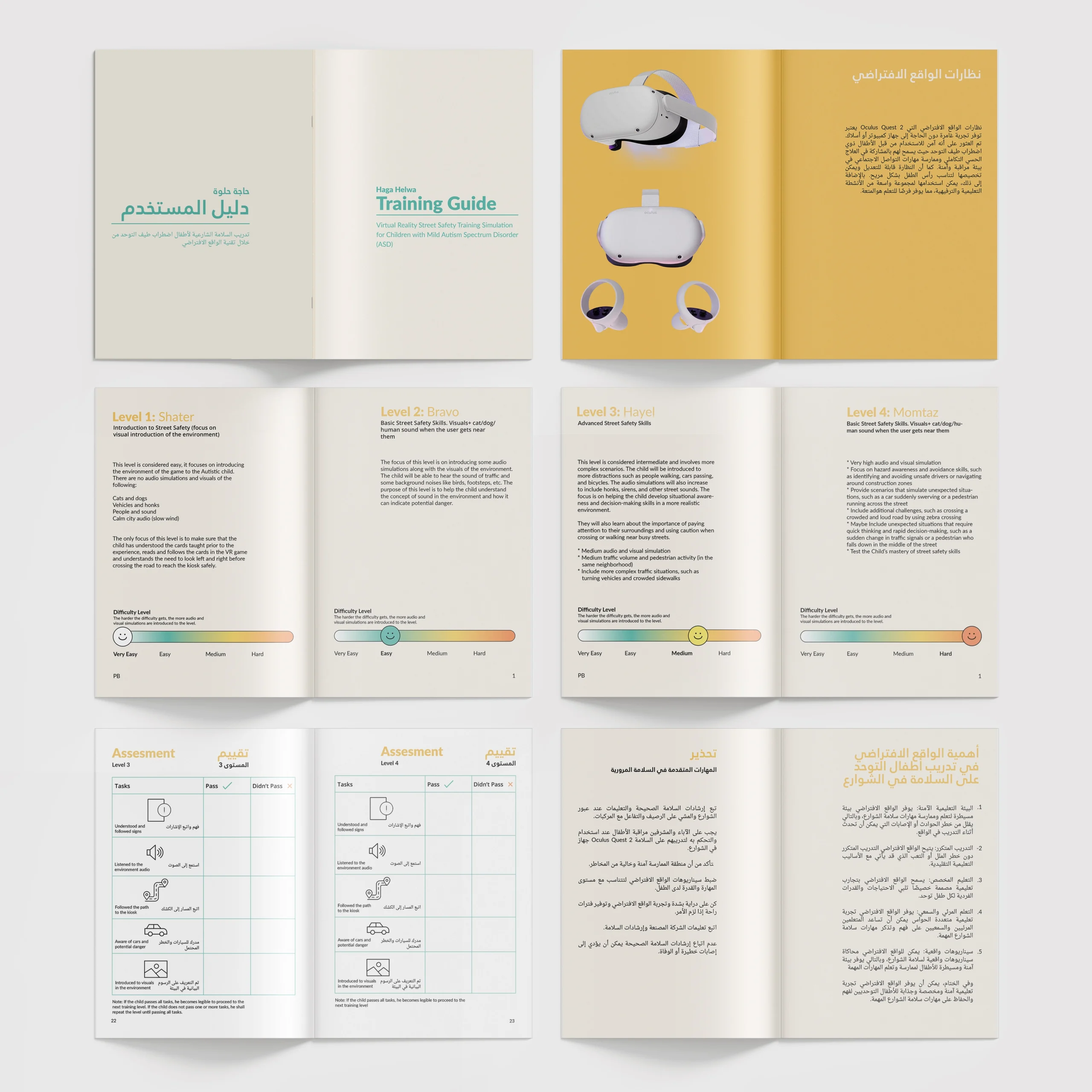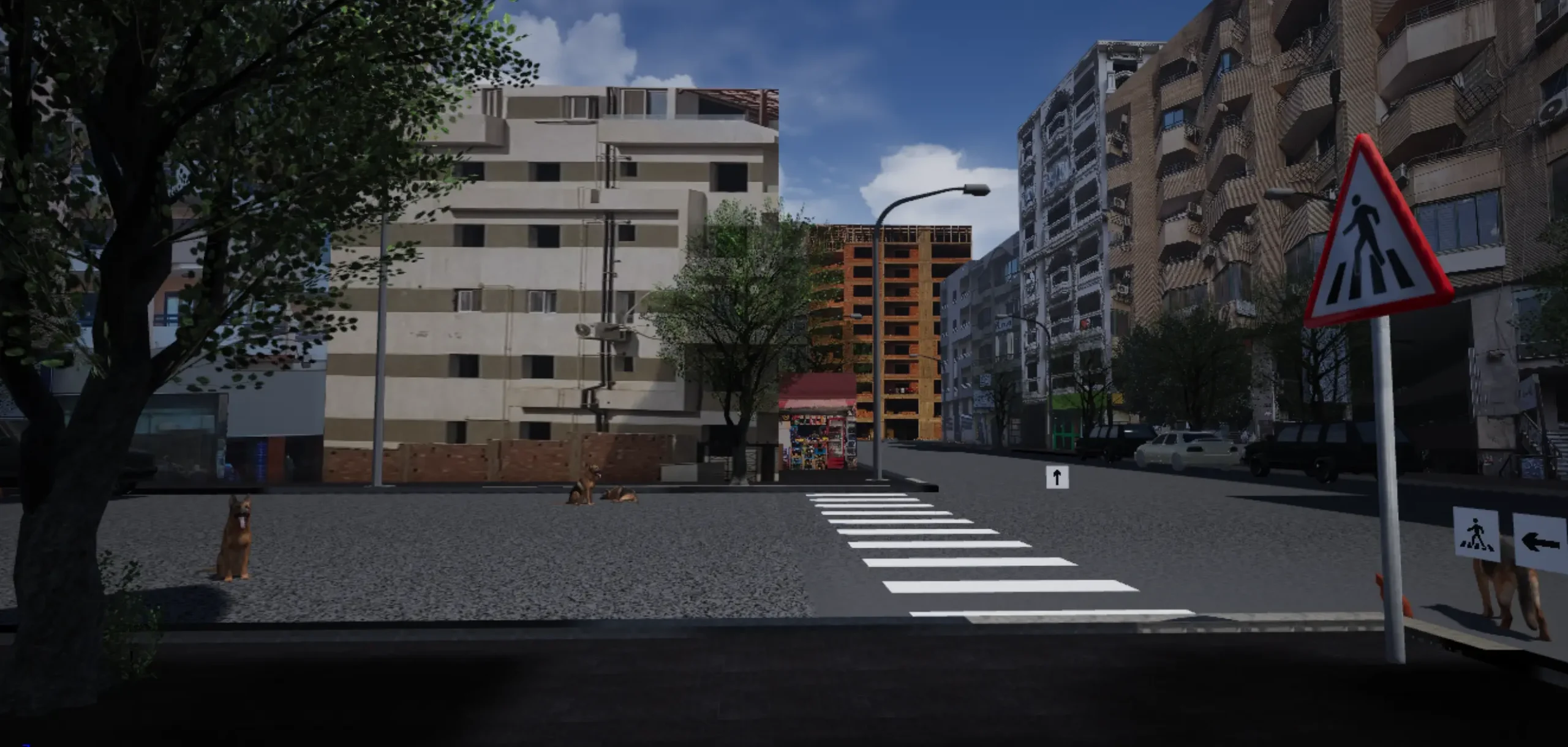Haga Helwa VR Training
Haga Helwa – Virtual Reality Street Safety Training Simulation for children with Mild Autism
Project Overview
“Haga Helwa” is an immersive virtual reality (VR) training simulation meticulously crafted by Dana Khayrat, a talented graphic and interior designer from The American University in Cairo (AUC). This project aims to educate children with mild Autism Spectrum Disorder (ASD) about street safety by simulating the dynamic and complex environment of Cairo’s streets.
 Challenges
Challenges
The streets of Cairo, known for their vibrancy and congestion, present numerous navigation challenges, especially for children with ASD who might struggle with sensory processing and hazard recognition. The design challenge was to replicate these conditions in a VR setting that offers a safe, controlled learning environment.
Solutions
- Research and Development: Undergoing extensive research, including on-site observations and consultations with special needs educational experts and inclusion consultants to capture the essence of Cairo’s streets accurately. While also carefully considering the educational needs of Autistic children.
- Design and User Experience: The VR experience is enriched with detailed, realistic audio-visual simulations that progressively intensify to mirror the sensory experiences of navigating through Cairo, helping children adapt to real-world conditions in a gradual, controlled environment.
- Educational Materials: A bilingual guidebook and educational street signs cards were developed to supplement the VR training, providing written instructions and reinforcing the learning objectives visually and preparing children for the VR.
- Authentic Simulation: Focused efforts were made to ensure the VR simulation not only entertains but educates, with realistic graphics and interactive scenarios that closely mimic real-life interactions and hazards encountered on Cairo streets.

Implementation
Deployed in several ASD-specialized schools and therapy centers, the VR simulation was integrated into educational programs to provide hands-on learning experiences. It allows children to engage in various street-crossing scenarios, learning to identify safe pathways, and respond to sudden changes typical to Cairo’s bustling environment.
Results
Feedback from educators and participants has been overwhelmingly positive, with reports of significant improvement in the children’s ability to understand and navigate street safety. The engaging nature of the VR simulation has led to increased participation and enthusiasm among the children, enhancing their learning experience.
Impact
The “Haga Helwa” project not only raises street safety awareness among children with ASD but also showcases the potential of VR technology in revolutionizing educational approaches for special needs education. The project is a testament to the innovative use of technology to solve real-world problems in a manner that is both effective and engaging.
Conclusion
Dana Khayrat’s vision for “Haga Helwa” exemplifies how design and technology can come together to create powerful educational tools. This project paves the way for future initiatives that aim to combine creative design with practical applications, enhancing the safety and well-being of children with ASD. The ongoing success of “Haga Helwa” encourages continued innovation in the use of VR in educational and therapeutic settings.


Level 1
 Level 2
Level 2
 Level 3
Level 3
 Level 4
Level 4
Interview by The American University in Cairo https://www.youtube.com/watch?v=cKtaj5T7WWg
Live TV Interview https://www.youtube.com/watch?v=0L7JWRdrlqE